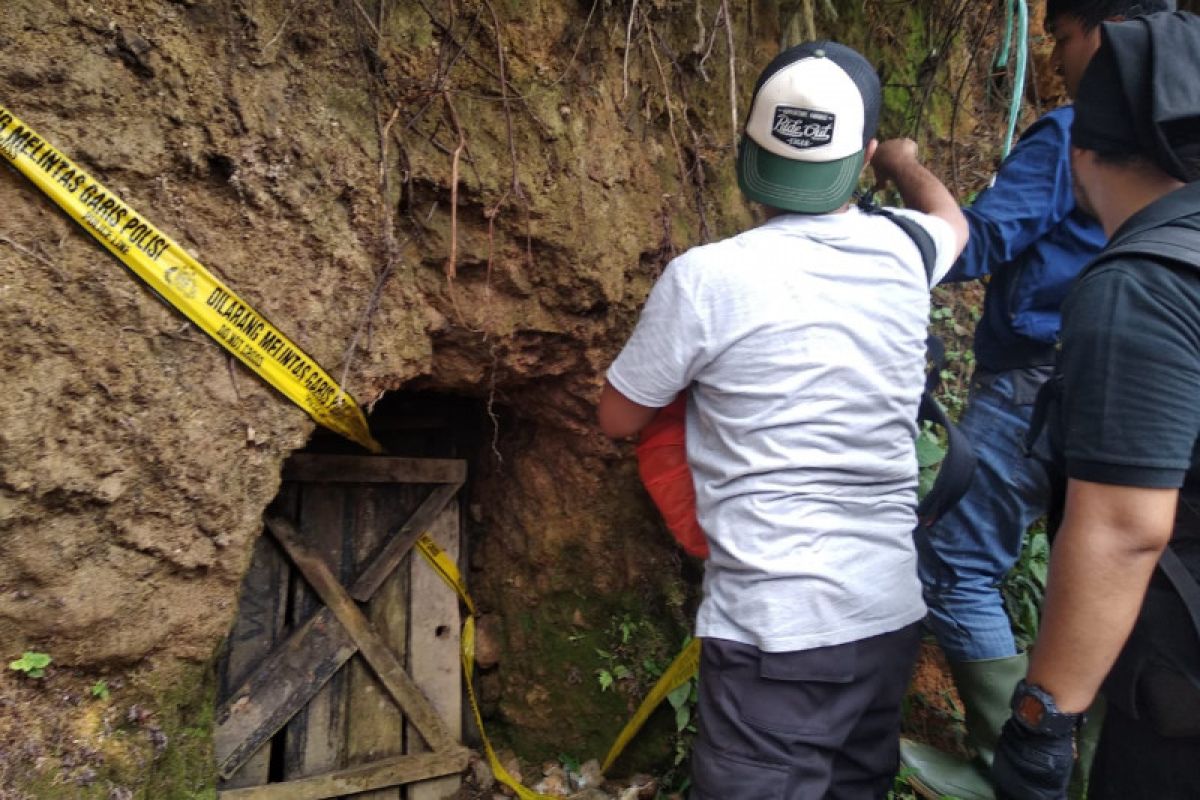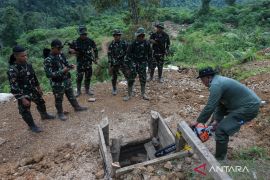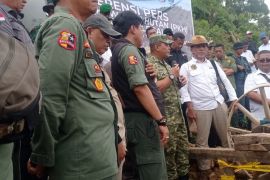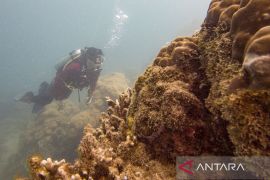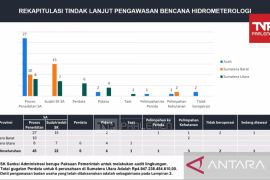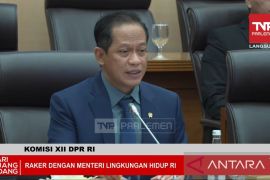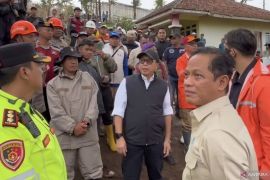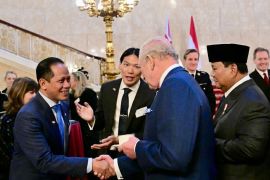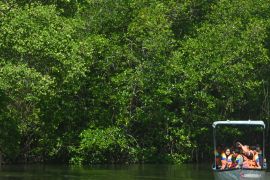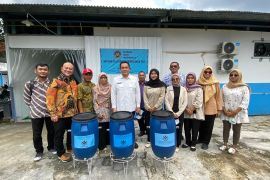"Today, we sealed 10 pits of the illegal mining site with a police line, and we are taking stern action against the illegal miners if they return to resume their unlawful activities," Head of the Banten Provincial Police's Operational Bureau Sen. Coms. Aminudin Roemtaat stated.
Roemtaat confirmed that members of Banten's anti-illegal gold mining task force, comprising military and police personnel as well as representatives of several related agencies in the province, closed the illegal mining pits.
Members of the task force had conducted land patrols from Thursday to Friday by visiting the blocks of Cimari, Cirotan, Cidandak, Gunung Leutik, Muara Tilu, Bunung Masigit, Pasir Wiru, Sopal, Cigadang, Ciburuluk, Ciawitali, Cikatumburi, Pasir Ipis, Ciburiling, Cikopo, and Cimadur, Roemtaat revealed.
Some 302 personnel were deployed to conduct land patrols. They were segregated into two groups to track 16 pits where illegal mining activities were conducted in the Citorek area of Cibeber Sub-district, Lebak District.
Roemtaat pointed out that some of the sealed pits were found in the area of Citorek track, adding that the total number of illegal pits may reach "hundreds" and are located in difficult areas.
In the meantime, Banten Police spokesman Sen. Coms. Edy Sumardi revealed that the anti-illegal gold mining task force had continued to probe those allegedly involved in these environmental crime-related offences.
However, no arrests had yet been made since police investigators are handling the case. They have questioned 12 witnesses, he remarked.
The illegal mining activities within the TNGHS area can be traced back several decades. Such challenges were highlighted in a scientific report titled "A Challenge for a Model National Park Management, Gunung Halimun-Salak Management Project" (2004).
Published by the journal of "Berita Biologi, Volume 7, Nomor 1, April 2004 dan Nomor 2, Agustus 2004" (in https://media.neliti.com/media/publications/68106-EN-a-challenge-for-a-model-national-park-ma.pdf) , the report was released by Kanenori Miura, chief advisor of the Japan International Cooperation Agency (JICA) expert team,.
Despite the significant role that the national parks, including the GHSNP, play in securing Indonesia's profuse biological diversity, unlawful activities, such as illegal logging and illegal mining, have constantly threatened the sustainability of their existence.
According to Miura in 2004, the Indonesian government has been making efforts to preserve the GNSNP, but unlawful activities, such as illegal logging and unlawful gold mining have continued to threaten this national park, which administratively covers the district areas of Bogor and Sukabumi in West Java Province and of Lebak in Banten Province.
"Illegal miners dig narrow tunnels in a river slope, and then ore gold by using water rotating drams and mercury. However, such accumulative activities have been diminishing the remaining forest at a significant rate," according to Miura.
Miura's report showed that the Madur River in Lebak District was observed as what he called the "hot spots of illegal mining". In 2004, he forecast that the number of people engaging in illegal mining activities might reach 500 or more than that figure.
Illegal mining activities have oftentimes been blamed to contribute to environmental damage that result in landslides and flash floods in various parts of Indonesia.
In this context, President Joko Widodo (Jokowi) had drawn attention to the criticality of curbing illegal gold mining activities to help prevent the recurrence of natural disasters in future.
During his visit to Banjar Irigasi Village in Lebak Gedong Sub-district, Lebak District, Banten Province, on January 7, 2020, President Jokowi had instructed the local authority to put a halt to illegal gold mining.
He contended that illegal mining activities had fueled deforestation in Banten Province and must be thwarted to prevent a relapse of flash floods in future.
"In Lebak District, Banten, we can see forest encroachment for illegal mining. I have ordered the governor and district head to stop this," Jokowi remarked in Banjar Irigasi Village, Lebak Gedong Sub-district, in Banten on Jan 7.
Flash floods that hit Lebak District on Wednesday (Jan 1) claimed 10 lives and damaged 19 schools in six districts in addition to wrecking 1,410 houses.
Taking into account the detrimental impact that they may have on the people at large, the Indonesian police do not merely target the illegal gold miners but they also attempt to crush those running the sand mining activities as revealed in the Bintan case.
The Bintan District police have recently curbed all illegal sand mining sites in Galang Batang and Malang Rapat areas of Gunung Kijang Sub-district in Riau Islands Province.
Bintan Police Chief Adjunct Sen. Coms. Boy Herlambang had also claimed on Jan 19, 2020, that there were no more illegal sand miners in Gunung Kijang Sub-district's areas.
Crushing all illegal miners across Indonesia will not only help protect and preserve the environment but it will also save the lives of scores of Indonesians in natural disasters since catastrophes, such as flash floods and landslides, may partly be triggered by the serious damage and degradation of the environment. (INE)
Related news: Banten collaborates closely with police to curb illegal gold mining
Related news: Jokowi instructs local authority to halt illegal mining in Banten
Related news: Bintan police curb illegal sand mining sites
Editor: Azis Kurmala
Copyright © ANTARA 2020
